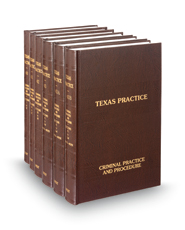
A legal treatise generally provides an overview of a specific area of the law that is:
In contrast to a broad but shallow legal encyclopedia, a treatise explores a narrower topic, in depth. (This guide uses the term treatise broadly enough to include practice guides and materials.) Treatises go beyond description, often including analysis and commentary. Generally, treatises survey multiple jurisdictions, federal and across the states. However, a treatise may focus on a particular jurisdiction, especially for more populous states like Texas.
Older treatises typically address a major field of the law, like torts, written by a team of authors. More recent treatises tend to focus on a sub-area, such as defamation. Additionally, older treatises tend to be large, multi-volume works, while modern treatises may be only one or two volumes. Bloomberg Law is experimenting with variations on treatises, such as the "evergreen" treatise of ACA Implementation Monitor, which is like an annotated individual statute, with a chart laying out statutory sections and then corresponding regs and BNA commentary.

Treatises are the key secondary source to use. They are most beneficial in the first half of the research process, when trying to familiarize yourself with the general area of law. (One may need to use other sources such as a legal encyclopedia first though simply to figure out in which area of law one needs to find a treatise.) Treatises provide the user with useful citations to primary and secondary authorities, moving a research project along to its next steps.
Treatises are available in print and online through licensed databases. You may be most familiar with Lexis (which contains Matthew Bender treatises) and Westlaw (which owns O'Connor's), but there are other information providers with more print titles and/or practitioner orientated databases out there. Some examples of other content producers are ABA, Bloomberg Law (which bought BNA), Wolters Kluwer (owner VitalLaw). There is no free, online equivalent or alternative for a treatise.
If you already know the title you need, do a title search in the library's online catalog, TALLONS. Lexis and Westlaw both have a main search box in which you can start typing a title and auto-recognition will work to show results toward the bottom. With both Lexis and Westlaw, you have the option to flag an individual database as a favorite.
If you do not already have a specific title in mind, you can find treatises using several different methods, including:
